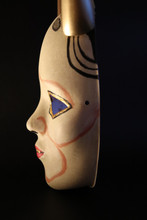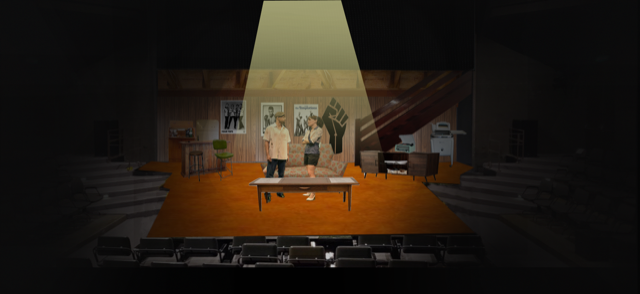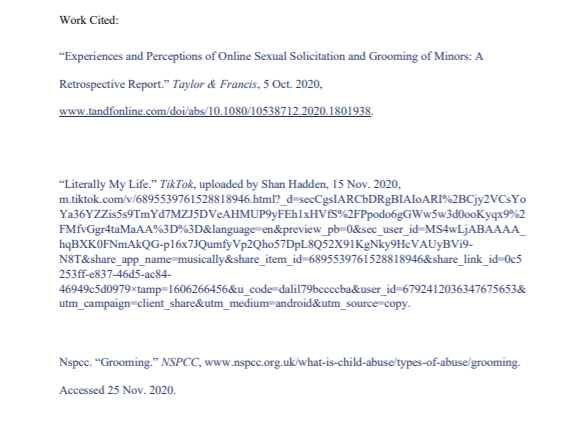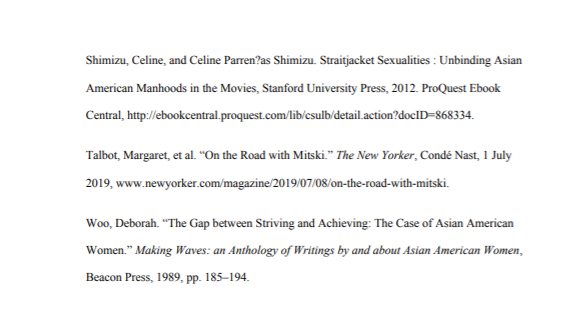Feminist Curious December 18th, 2020 - Finals Edition
- Feminist Theatre Makers

- Dec 18, 2020
- 8 min read

In This Issue:

Featured Feminist: Elliot Page
Featured Finals: Jackey Lee Cameron Alvarez Mattie Limas Britney Gomez-Landeros Rory Smith
Why I Chose to Get a BA in Theatre: a column by Ray
Podcast Recommendations
Join the FTM Team!
Featured Feminist:
Elliot Page

Elliot Page: Real-Life Superhero
by Mattie Limas
Elliot Page, an actor well known for his roles in Juno, Inception, and the Netflix series The Umbrella Academy, recently came out earlier this December as transgender, now using he/they pronouns. All over the internet, support poured in congratulating him for reaching this point in his journey.

One of the most precious comments came from Page’s spouse, Emma Portner, who
commented on their Instagram post, “Trans, queer and nonbinary people are a gift to this world... Elliot’s existence is a gift in and of itself. Shine on sweet E.”
While many major outlets made lightning-quick edits replacing Page’s deadname with Elliot, unfortunately, it seems as if writers for major news outlets including The New York Times, Variety, and CNN have not been able to grasp the importance of censoring a deadname when handling this information. These articles are not the first of their kind, and in fact, are a part of an abundance of mishandled articles that mention a transgender star’s name, and then haphazardly include a phrase structured along the lines of, “formerly known as *insert deadname*.”
While it seems that this inclusion is present only to prevent confusion amongst readers, I’d argue that it does not take much contextualization skills to understand who we are referring to when their name is coupled with what work they are best known for. Let us not infantilize the capability of cis-heteronormative readers to understand transition etiquette and basic respect. If queer people can get with the program at the snap of a finger, then there truly isn’t anything intellectually difficult about meeting us at that level. Anything less cheapens the label of “LGBT+ ally.”
With that said, Elliot Page is a fantastic human being, and here is why you too should celebrate his existence as a “gift in and of itself.”
Elliot Page was born on February 21st (we love a Pisces), 1987 in Halifax, Nova Scotia. He was already acting at the young age of ten but made his first huge breakthrough in the 2005 film Hard Candy, where he played a young kid taking a pedophile hostage. A critical and financial success, the acclaim for his role would place him just in the right position for his next major role in the 2007 film Juno. Acting opposite of stars like Jennifer Garner, Jason Bateman, and Michael Cera, Page’s performance would help the film land it’s spot among one of the most decade-defining movies of the 2000s.
Page is also known by most of us geeks for his role in the X-Men films as the superhero Kitty Pride, a mutant able to phase through solid objects. In his most recent work, he has even begun to direct, leading the production of the 2019 documentary film There’s Something in the Water, which explored the effects of environmental racism on Black and Indigenous communities in Nova Scotia. And of course, he is well known for being another “super” with his role as Vanya Hargreeves AKA The White Violin AKA Number Seven in the hit Netflix series The Umbrella Academy, based on the comic book created by Gerard Way.
Elliot Page has already been an inspiration to many of us queer folk since he had initially come out in 2014, announcing his sexuality at the Human Rights Campaign’s Time to Thrive conference in Las Vegas. What is especially important and cathartic about this news is - in the words of Kasey LeBlanc, writer for WBUR.com - “Elliot’s joy was no longer just Elliot’s, and perhaps in becoming collective, that joy became just a little less fragile.” When a star comes out as queer, not only do they join the family that is the queer community, but they become the person that in-the-closet or young people can look up to and feel seen by. They become the person that older closeted people can look at and see that it is never too late to live your truth.
In essence, they become our superheroes.
Featured Finals:
We asked you to send us your final projects that you were most proud of and you returned with these gems. Enjoy this collection of artistic and academic brilliance, all turned in before the notorious 11:59 pm deadline.
Jackey Lee
Check out Jackey's traditional Noh style mask, made for Theater History class.
The character is a female who is half human and demon.
Each angle portrays different emotions or moods and the gold represents the demon side, according to the Japanese Noh tradition.
Cameron Alvarez
Take a look at Cameron's storyboard interpretation of the 2013 play, Detroit '67 by Dominique Morisseau.
Mattie Limas
Mattie Limas took an abstracted approach to the Japanese Noh theatre mask and decided to really play with the ideas of light and perception (quite literally). In Noh theatre, the subtleties of a mask's form lend it the ability to completely change in expression depending on the lighting and angle at which the actor holds their head.
Mattie was also inspired by artists like Claude Cahun, Motohiko Ohani, and Eugène Ionesco to make a mask that would show what it is like to be both gender nonbinary and Mexican American, and how both identities do not have to be mutually exclusive.


Britney Gomez-Landeros
Rory Smith
Congrats to everyone on finishing the semester strong!
Why I Chose to Get a BA in Theatre
by Rachel Post
In the theatre world, and especially the musical theatre community, BFA performance programs are famous for churning out triple threats and massive talents. These programs are usually elite, audition-based conservatory-style curriculums with little focus on general education classes and extreme focus on technique and performance. To some, this may seem like the dream: to spend all day doing and learning about theatre, eschewing any trivial science and math classes. For me, however, this seemed counterintuitive to my goals as a theatre maker.
When I was applying to colleges, I did heavy research into all of the musical theatre and acting programs I could find. In their mission statements, words kept popping out to me like, “competitive” and “elite” which are all fine and good, especially in a field that requires such fierce competition to get ahead. However, these words did not describe at all what I was looking for in a school. If I wanted to jump right into the intensity and vigor of show business, I would have moved to the city and pounded the pavement right out of high school, but I knew I wasn’t ready for that. I needed acting training and I didn’t want to do it in a place that I knew would pit me against my classmates.
I craved an environment that was slightly more collaborative; one that encompassed all my interests and did not encourage me to have tunnel vision for just my discipline.
School has always been a sort of sanctuary for me. I enjoy academic classes and I appreciate when they overlap with my artistic training. Often, I will find myself ultra-engaged in a history class because I am familiar with a historical play or musical that helps me imagine the events better. Or vice versa I will discover an interesting fact in a science class that helps me to deepen my understanding of elaborate acting techniques, like Chekhov. And humanities classes like Women and Gender Studies directly influence my perception and critical assessment of the content I ingest and create. I truly feel as though without the information I learned in my general education and non-major classes, I wouldn’t be the actor-musician-writer I am today. I believe that my education was more well-rounded because I went the route of getting a BA.
More than this, within the theatre department alone, I have become a more well-rounded theatre artist. Because I’ve been required to participate in all aspects of making theatre on both the technical and performance sides, I feel a deeper appreciation and sense of teamwork than I might if I was only studying performing. Moreover, as I venture out into the vastness that is the theatre world and the industry, I can confidently say that my talents and abilities are widespread. In a field as uncertain as this one right now, I enjoy knowing that I have practice making something out of nothing. A BA Theatre program at a state school may not be given as much funding as a BFA at a liberal arts school, but because of this, students are forced to learn in school what it is like to build something truly from scratch.
I may not have been training for Broadway directly, but as I prepare to graduate, I find that my perception of what theatre is has grown so much wider than that one street in New York. I’ve worked with and learned from incredible movement and acrobatic performers, solo artists carving their own freelance path, voice coaches who teach internationally, traveling clowns, and so much more. My concept of what theatre is has grown and changed.
My work as an actor has gotten deeper and more thoughtful, and my life as an academic has not ended.
So many people claim that the end all be all of college theatre is the BFA. I’m here to tell you that couldn’t be farther from the truth. With my BA in Theatre Arts, I can apply to a wider variety of master's programs if I choose not to pursue acting or acting dramaturgy. I’ve become more confident in my multi-hyphenate self-description, and I have seen successful theatre artists who do it all as well. Perhaps most importantly, however, I have learned to make my own choices and carve my own path, rather than doing what is expected of me. No one needs a fancy, expensive BFA to do theatre. No one even needs a BA to do it. Going to school for theatre is a privilege, not a requirement, so why do we have to make it more elite than it is?
Podcast Recommendations
from the FTM Leadership Team

"horrible womxn talking about horror"
"Nicole Byer is single and has been for decades. She’s smart, funny, has a fat ass and loves
giving blow jobs. So the question is why is she perpetually single? This podcast is a quest to find that answer. Every week, Nicole invites a comedian, friend, or ex-fling to interview their dating life and figure out her own."
"A weekly exploration of all the things Jonathan Van Ness (Queer Eye, Gay of Thrones) is curious about. Come on a journey with Jonathan and experts in their respective fields as they get curious about anything and everything under the sun."
"Crime Junkie is a weekly true crime podcast dedicated to giving you a fix. Every Monday, Ashley Flowers will tell you about whatever crime she’s been obsessing over that week in a way that sounds like you’re sitting around talking crime with your best friends. The storytelling is straightforward and free of rabbit holes so the cases stay suspenseful and are easy to follow. If you can never get enough true crime… Congratulations, you’re a Crime Junkie!"
"Hosted by two queer brown immigrants Rage Kidvai & Thanu Yakupitiyage - Bad Brown Aunties is a podcast about art, culture, politics, and legacy through the lens of the amazing and creative people of color in our community. In each episode, we pick an artist, activist, writer, or cultural worker to talk about their lives, work, and who inspired them to be who they are, with a special nod to the aunties and elders that have shaped them."
"You know how when someone asks "How are you?" you just say "Fine,” even if you’re totally dying inside, so everyone can go about their day?
“Terrible, Thanks For Asking” is the opposite of that. Nora McInerny asks real people to share their complicated and honest feelings about how they really are. It’s sometimes sad, sometimes funny, and often both.
TTFA was named one of the best podcasts three years in a row by The Atlantic. The New York Times calls it "a gift to be able to listen."'
ATTENTION ALL STUDENTS:

Want to make art, shed light on important issues, and give students a place to voice their concerns? Applications for Feminist Theatre Makers staff are now open for the Spring 2021 semester!
Positions of Assistant Marketing Director, Blog Writer, and Member-At-Large are available. Position descriptions can be found on the application, which can be accessed here: https://forms.gle/dwkxSBTf5facAsTu5
**All applications are due by Sunday, January 10th at 11:59 pm. The need for interviews is TBD.**
If you have any hesitation or confusion about the application, please e-mail us at feministtheatremakers@gmail.com and we will be glad to clear anything up for you and assist you through the process.
We look forward to seeing your applications!

















































Comments